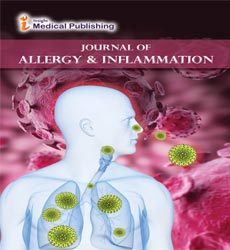Haematobium infection and Chemotherapy-induced changes in Interleukin-6 and acute phase proteins
Tawanda Chisango
University of KwaZulu-Natal, South Africa
Received Date: 2022-07-04 | Accepted Date: 2022-07-07 | Published Date: 2022-07-29Abstract
There is an increased risk of cases of morbidities from inflammation caused by Schistosoma haematobium infection, hence the need to determine levels of inflammatory markers in Schistosoma haematobium infected children and determine effect of repeated annual mass treatment on levels of interleukin-6 and acute phase proteins. Urine specimens from 212 school children were collected and examined to determine prevalence of Schistosoma haematobium at baseline and 2 years following annual rounds of praziquantel treatment. Levels of 4 acute phase proteins and IL6 were measured at baseline and 2 years following praziquantel treatment. Overall pre-treatment prevalence of Schistosoma haematobium infection was 23.1 % at baseline and 0.47 % after 2 years of annual treatments. Schistosoma haematobium infected children had marginally higher levels of procalcitonin and tissue plasminogen activator before treatment though the difference of all three was not significant p>0.05. Levels of ferritin and fibrinogen were lower in Schistosoma haematobium infected children before treatment, however the difference was also not significant p>0.05using Mann-Whitney test of bronchitis can be difficult and can be done. Acute bronchitis due to infection is often transmitted by air droplets containing bacteria that are produced when speaking, sneezing, or coughing
Open Access Journals
- Aquaculture & Veterinary Science
- Chemistry & Chemical Sciences
- Clinical Sciences
- Engineering
- General Science
- Genetics & Molecular Biology
- Health Care & Nursing
- Immunology & Microbiology
- Materials Science
- Mathematics & Physics
- Medical Sciences
- Neurology & Psychiatry
- Oncology & Cancer Science
- Pharmaceutical Sciences
